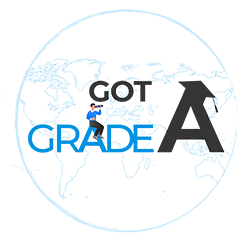Feedback is key in education. Quality feedback gives students clarity on their strengths, areas for improvement, and what to do to improve their skills. So instead of giving students a grade, give them insights on how to grow academically. This helps students to approach studies with a growth mindset.
Whether it’s an assignment, test, project, or in-class participation, feedback is a guide that helps students improve. So next time, instead of just marking what’s wrong, show students the way forward. Here’s how feedback contributes to academic growth:
1. Specification of Learning Objectives and Standards
Feedback is a compass for students to know what is required of them in terms of learning objectives and academic standards. If the teachers stress some aspects of improvement, then the students are better knowledgeable about what they are targeting. This clarity will not only guide the students but also determine their levels of progress.
2. Self-reflection and responsibility
Doing assignments becomes an opportunity in the development of students skills. Feedback gives the students control over their own academic journey. The more responsible they are, the more they actively seek avenues to grow instead of just sitting back for results to occur. Through this process, they learn to become independent and, ultimately, lifelong learners.
3. Building Resilience and Maintaining Motivation
One of the benefits constructive feedback can provide is resilience strengthening. Students can start considering that challenges are part of learning and not obstacles toward their success. This enables dealing with academic setbacks and encourages students to continue learning.
For example, a student keeps going if the feedback on what he has done reflects some amount of effort or indicates the work done in his assignment as an effort. From the point of view of nurturing when giving feedback, learning seems like an endless marathon journey with possibilities for improvement step after step.
4. To Develop Problem-Solving Skills
Education is not about success on the professional end but growth on the personal side as well. Knowledge and gaining understanding from individuals with other perspectives make one a better person and, therefore, more rounded.
That way, once you do gain that kind of understanding regarding all these different views and learn about different cultures, your horizons will be opened up for the building of much stronger relationships with people from all walks of life.
The more you learn, the more you’ll feel capable of taking on new opportunities, overcoming obstacles, and achieving your goals.
Networking and Connections
Feedback also plays a key role in developing problem-solving skills among students. The teachers help the students to think analytically and develop other alternative solutions by indicating new approaches to solve errors or refine methods. This practice of reevaluation helps nudge students to develop basic skills in problem-solving, which are essential not only in academics but also in real life. With this, students learn to deal with problems analytically, which eventually leads them to become stronger critical thinkers.
5. Building Open Communication and Co-operation
Feedback promotes the flow of open communication between learners and teachers. In a constructive and supportive feedback context, the students are generally more willing to discuss problems in their understanding and seek more clarity.
An open channel for feedback makes the student-teacher relationship more collaborative. It gives the students a feeling of being supported and having an opportunity to share their concerns, thus paving the way for more tailored guidance, which may be aligned with each student’s unique needs and challenges.
Data Collection
It is time now that you can start collecting the data. It could range from conducting interviews to using a survey and secondary collection of data. You always have to remember ethical clearance like consent and confidentiality during this process.
Maintain the data well from day one. Keep all those in spreadsheets or maybe particular software to make it possible for later analysis.
Pro Tip: How to Deliver Effective Feedback
Do’s
- Be specific. General comments such as “good job” or “needs improvement” do not give guidance in meaningful ways. Try focusing on specific areas a student can improve on such as “Great analysis but try to incorporate more examples for support.
- Use positive language. If a student feels that there is improvement, then there is something to keep the student motivated. Areas to improve on should be highlighted using encouraging language so they stay interested.
- Encourage them to ask questions about what they think is important feedback.
Don’ts
- Don’t provide vague feedback. Feedback should provide students with clear and constructive pointers of what they could work on.
- Don’t overwhelm a student. Too much feedback at once can be unhelpful. Stick to one or two key points so the students can realistically work on them without feeling overwhelmed.
Seek Extra Academic Help
Do you need more individualized assistance in your academic career?
Got Grade A provides one-on-one help that can satisfy the specific needs of learners. Whatever need you have for an assignment, exam preparation, or simply understanding complex concepts, we are here to provide it.
With one-to-one support, Got Grade A ensures that you will get the guidance required for you to excel academically and really learn about your coursework. Call for a customized learning experience made especially to empower you academically




